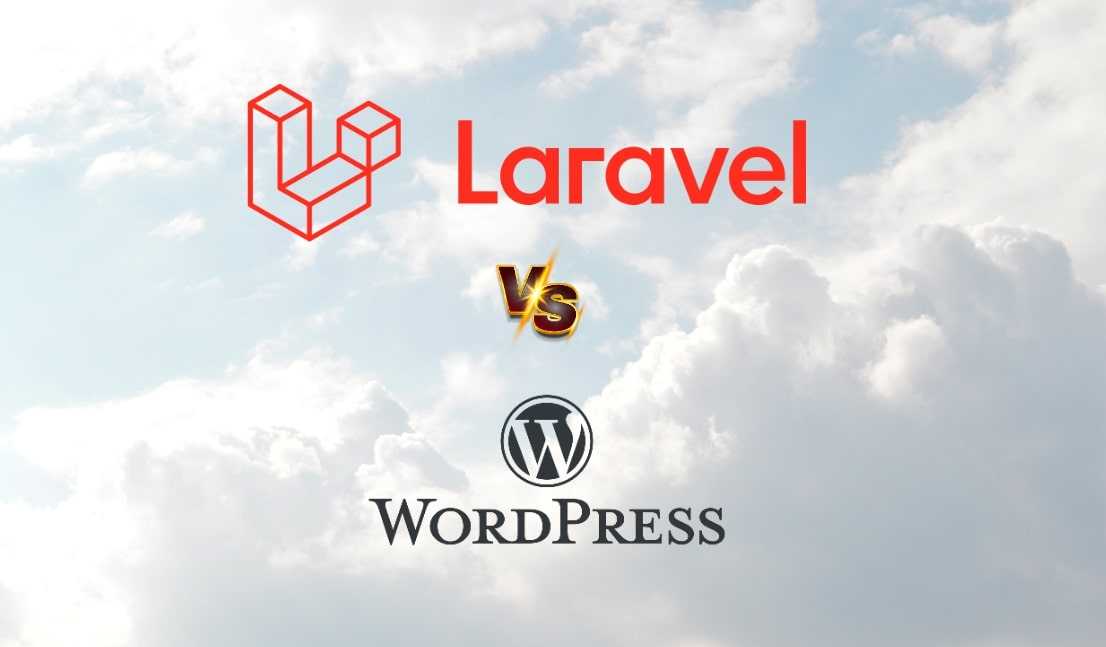Home Blogs Technical Custom Website Design with Laravel vs. Website Builder with WordPress
Posted By: Shriji Solutions
18 May, 2024

In the digital age, a strong online presence is essential for businesses, organizations and individuals. One of the key components of this online presence is the website, which acts as a hub for information, services and engagement with the audience. When it comes to building a website, there are two primary approaches: custom website design using frameworks like Laravel and using website builders like WordPress.
Each approach has its own strengths and weaknesses, and the choice between them depends on a variety of factors including project requirements, budget, technical expertise, and long-term goals. This article provides a comprehensive comparison of custom website designs using website builders like Laravel and WordPress to help you make an informed decision.
Overview of Laravel and WordPress
Laravel
Laravel is a PHP-based open-source web framework designed for building custom web applications. It follows the Model-View-Controller (MVC) architectural pattern, which helps separate the logic and presentation layers of an application. Laravel offers a rich set of features including routing, authentication, sessions, caching, and more, making it a popular choice for developers who need to build robust and scalable web applications from scratch.
WordPress
WordPress is a content management system (CMS) that started as a blogging platform but has evolved into a versatile website builder. It is also open-source and built on PHP and MySQL. WordPress offers a vast library of themes and plugins, allowing users to create and customize websites without requiring extensive coding knowledge. It is known for its user-friendly interface and large community support.
Custom Website Design with Laravel
Advantages
- Flexibility and Adaptation: Laravel offers unparalleled flexibility and customization options. Since it is a framework rather than a CMS, developers have complete control over the design and functionality of the website. This makes it ideal for projects that require unique features and custom integrations.
- Scalability: Laravel is designed with scalability in mind. It can handle complex web applications and large-scale projects. Laravel's robust architecture allows efficient management of resources and scaling as the project grows.
- Display: Laravel provides various tools and features to increase performance, such as route caching, query optimization, and the ability to use powerful ORM (Eloquent) for database interactions. These results in faster load times and a smoother user experience.
- Security: Security is an important aspect of web development, and Laravel provides many built-in security features. These include protection against SQL injection, cross-site request forgery (CSRF), and cross-site scripting (XSS). Laravel also supports secure password hashing and encryption.
- Advanced Features Laravel includes advanced features such as task scheduling, event broadcasting, and real-time notifications, which are essential for modern web applications. These features can be implemented without relying on third-party plugins, reducing the risk of compatibility issues.
Disadvantages
- Development Time and Cost: Building a custom website with Laravel requires significant development time and expertise. This can result in higher costs than using a website builder like WordPress, especially for smaller projects or businesses with limited budgets.
- Technical Expertise Required: Laravel development requires proficiency in PHP and a good understanding of MVC architecture. This means that non-technical users or those with limited coding experience may find it challenging to work with Laravel.
- Maintenance and Updates: Custom websites built with Laravel require constant maintenance and updates to ensure security and functionality. This may take time and require a dedicated development team.
Website Building with WordPress
Advantages
- Ease of Use: WordPress is known for its user-friendly interface, making it accessible even to users with little or no coding knowledge. Visual editors (Gutenberg) and drag-and-drop builders (like Elementor) simplify the process of creating and managing content.
- Large Ecosystem of Themes and Plugins: WordPress offers thousands of themes and plugins, allowing users to quickly and easily add new features and customize the design of their website. This comprehensive library can save time and reduce development costs.
- Effective Cost: For small businesses, bloggers, and individuals, WordPress can be a cost-effective solution. Many themes and plugins are available for free or at low cost, making it possible to create a professional-looking website on a limited budget.
- Community Support: WordPress has a large and active community of developers and users. This means there are abundant resources available, including tutorials, forums, and documentation. Users can also find a wide range of third-party services such as hosting and maintenance providers.
- SEO Friendly: WordPress is designed with search engine optimization (SEO) in mind. It includes features like clean URL structures, customizable metadata, and plugins like Yoast SEO that help improve a website's search engine rankings.
Disadvantages
- Limited Customization and Flexibility: While WordPress is highly customizable, it may not offer the same flexibility as a custom-built website with Laravel. Users may face limitations when attempting to implement complex or unique features.
- Performance Issues: Depending on the themes and plugins used, WordPress websites may suffer from performance issues like slow load times. This can be mitigated by proper adaptation, but requires additional effort and knowledge.
- Security Concerns: WordPress is a popular target for hackers due to its widespread use. Although there are many security plugins available, reliance on third-party themes and plugins can create vulnerabilities. Regular updates and security best practices are essential to securing a WordPress site.
- Dependency on Plugins: Many advanced features in WordPress depend on plugins. While this may be convenient, it also means that the website is dependent on third-party developers for updates and compatibility. If plugins are abandoned or not properly maintained this can cause potential problems.
Compare
| Parameters | Laravel | WordPress |
|---|---|---|
| Customization and Flexibility | Provides complete control over the design and functionality of the website. Developers can create custom solutions tailored to specific project needs without being limited by predefined templates or themes. | Offers a high level of customization through themes and plugins, but may fall short for projects that require highly specialized or complex features. Users may need to rely on third-party plugins, which may pose compatibility and security concerns. |
| Development Time and Cost | Requires significant development time and technical expertise, making initial costs high. However, the investment may be justified for complex projects that require custom features and scalability. | Usually faster to install and more cost-effective, especially for smaller projects or businesses with limited budgets. The availability of pre-built themes and plugins can significantly reduce development time. |
| Performance | Known for its performance capabilities with tools and features that optimize load times and resource management. Custom-built applications can be fine-tuned for maximum efficiency. | Performance may vary depending on themes and plugins used. Proper optimization is essential to avoid slow load times and ensure a smooth user experience. This may require additional plugins and configuration. |
| Security | Provides strong built-in security features and allows developers to implement custom security measures. The framework's architecture and coding standards contribute to a secure development environment. | Maintaining security requires careful management of themes, plugins, and regular updates. Although there are many security plugins available, reliance on third-party components can create vulnerabilities. |
| Scalability | Designed for scalability, making it suitable for large-scale projects and applications that need to handle high traffic and complex functionality. The framework's architecture supports efficient resource management. | This can be expanded up to a certain limit, but as the website grows, there may be limits. High-traffic websites or websites with complex features may require additional optimization and server resources. |
| Maintenance and Updates | Custom websites require constant maintenance and updates to ensure security and functionality. This may take time and require a dedicated development team. | Regular updates are necessary to keep themes, plugins, and the core CMS secure and functional. The process can be simplified with automatic updates, but manual intervention is often required to resolve compatibility issues. |
| User Experience | Provides the opportunity to create a tailored user experience with custom interfaces and features. Developers can design user journeys to meet specific project goals and audience needs. | Provides a user-friendly interface for content management, making it easy for non-technical users to create and update content. The visual editor and drag-and-drop builders enhance the user experience for site administrators. |
Use Cases
When to choose Laravel
- Complex Web Applications: Projects that require unique features, complex business logic, or extensive customization are suitable for Laravel. Examples include e-commerce platforms, social networks, and enterprise-level applications.
- Scalable Solution: If the project is expected to grow significantly in terms of traffic and functionality, Laravel's architecture supports scalability and efficient resource management.
- High Security Requirements: Applications that handle sensitive data or require stringent security measures can benefit from Laravel's built-in security features and the ability to implement custom security solutions.
- Long Term Projects: For projects with a long-term vision and a budget that supports ongoing development and maintenance, Laravel provides a strong foundation for continuous improvement and scalability.
When to choose WordPress
- Content-Driven Websites: Blogs, news sites, and content-heavy websites are ideal for WordPress due to its strong content management capabilities and SEO-friendly features.
- Small to Medium Sized Businesses: Businesses that need an online presence without extensive custom features can benefit from WordPress's cost-effective and user-friendly approach.
- Rapid Deployment: Projects that need to be started quickly
Conclusion
Choosing between custom website designs with Laravel and using a website builder like WordPress depends on the specific needs, goals, and resources of your project. Laravel provides unparalleled flexibility, scalability, and performance for complex and large-scale projects, while WordPress provides a user-friendly, cost-effective solution for content-driven websites and small to medium-sized businesses. Each approach has its own strengths and weaknesses, and understanding these can help you make an informed decision.
- Laravel Ideal for projects requiring unique features, advanced security, and scalability. It demands a high initial investment in terms of development time and cost but provides a robust and tailored solution.
- WordPress Excels in ease of use, fast deployment and cost effectiveness for less complex projects. Its extensive ecosystem of themes and plugins allows significant customization without extensive coding knowledge.
For any custom website design or website builder needs, consider partnering Shriji Solutions, With expertise in Laravel and WordPress, Shriji Solutions can help you build a website that meets your specific needs, ensuring a high quality, secure and scalable online presence. Whether you need a sophisticated web application or a simple, elegant website, Shriji Solutions has the experience and skills to bring your vision to life.

